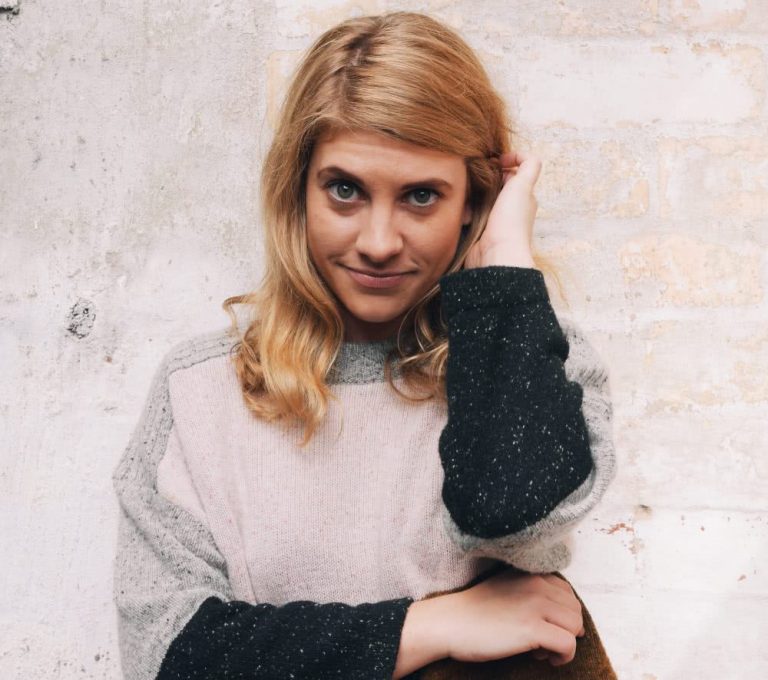In Bookshelves, we reach out to some of our favourite contemporary authors and ask them to talk us through books – the ones they own, the ones they hate, and the ones they can’t live without. This issue, we talked to Jennifer Down, the author of the excellent Pulse Points, about The Prophet, Joyce and more.
What is the most prized book that you own?
A copy of Khalil Gibran’s The Prophet that belonged to my grandma Roma. She gave it to me years before she passed away at 95, but I never really read it properly until after she died. It has her pencil underlinings and notes in the margins. She was the gentlest soul, but also very tough, and I can see why she loved it.
What was the first book that you bought?
I have no idea. I went to the library a lot as a kid, and my mum used to buy me books as treats sometimes. The first book I can remember spending my own money on, I think, was called The Last Race by Celeste Walters, about two teenage girls, both elite swimmers and competitors. It was about when the Sydney Olympics were on so I guess ten-year-old me was into ethics in sport.
What’s the last book that made you cry?
Just recently, I picked up a book of lyric essays called Where It Hurts by a Canadian writer, Sarah De Leeuw. The essays are loosely tied together, with loss and landscape as through-lines. She has incredible control over language. There were two essays – one called ‘Belle Island Owls’, about the disintegration of a marriage, and ‘Soft Shouldered’, which touches on missing the countless First Nations women who have disappeared and been killed while hitchhiking along the notorious ‘Highway of Tears’ – that made me weep. Her writing is like a new bruise.
What’s the book you fell in love with when you were a teenager?
A novel called The Way The Crow Flies by Ann-Marie MacDonald, a Canadian author. It was recommended to me by the librarian at the school where my dad works. It’s loosely based on the wrongful conviction (and eventual exoneration) of Steven Truscott, told from the perspective of an eight-year-old girl. It was everything I never knew I loved – emotional acuity, domestic drama, sinister suburbs, skilfully drawn characters, beautiful sentences – set against a Cold War-era backdrop, which is a period of history that deeply fascinates me. I’ve re-read it again and again since, and while it’s not a perfect novel, it still resonates with me.
What books do you have on your bedside table?
Too many. Usually one or two I’ve just finished with – at the moment, that’s the aforementioned Sarah De Leeuw and Italo Calvino’s Six Memos For The New Millennium – and several I’m about to read: Open City by Teju Cole, Things We Lost In The Fire by Mariana Enriquez, Taboo by Kim Scott, and the new Emily Wilson translation of The Odyssey. Also a bunch of weird books on infanticide, infant attachment and perinatal mental health for the novel I’m working on.
If you were trapped on a desert island, what’s the one book that you would want to have with you?
Probably poetry – something by Oodgeroo Noonuccal, Anne Carson, Judith Wright or Richard Siken.
What’s the last book that you hated?
I don’t have time to read things that I truly think I will loathe, or that’ll make me angry. I’m hesitant to say even this, but last year I read my inaugural Knausgaard (Autumn, the first of his Seasons quartet) and found it a bit underwhelming. I find it interesting that people rushed to praise these essays – while perfectly competent – on the domestic minutiae of life, where historically, when women have focused on the same topics, they’ve been dismissed or derided.
What’s a “classic” book that you’re ashamed you haven’t read?
There are so many. Probably Ulysses. I’ve read Joyce’s short fiction, but it feels a bit like cheating.
What’s a book people might be surprised to learn that you love?
I’m not sure if I still love them, but when I was 16 or 17 I had my shoulder reconstructed and for weeks I was too stoned on pain meds to read anything but the Stephanie Plum books. It’s this series of comedy/detective/chick-lit novels about a female bounty hunter in New Jersey who’s just… super horny for both a local cop and this guy she works with. I’ve never divulged that to anyone. I hope I lost all my literary cred just now.
Who’s the writer that changed your life?
Probably Helen Garner. I read The Children’s Bach when I was 16 and was stunned by the economy of language in creating a psychological landscape of such acuity and depth. And to read something recognisably Australian, set in the city where I’d grown up, was revelatory too.
Down’s collection of short stories, Pulse Points, is available for purchase through Text Publishing.

































